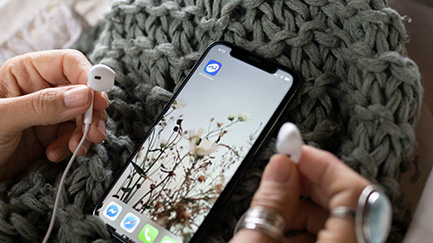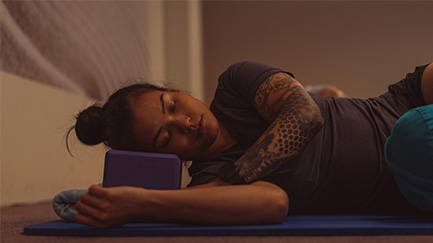In Australia and around the world, people are being asked to isolate, quarantine and/or practice social distancing to minimise the spread of the virus.
Simply put, social distancing means keeping a safe distance (approximately 1.5 metres) away from someone and avoiding large gatherings of more than 100 people (advice current at the time of writing).
Quarantine involves avoiding contact with others if a person has been exposed to coronavirus to see if they become ill.
Isolation involves separating an individual who has contracted COVID-19 to prevent them from spreading it to others.
Whilst social distancing, quarantine and social isolation measures can have a positive impact on the spread of the virus, these measures may be psychologically challenging, particularly for veterans, family members, older adults, people with psychological, social, financial problems and people who have pre-existing physical conditions.
At Mates4Mates, we know that social contact plays an important role in keeping psychologically healthy, and we actively encourage social connection through our various programs.
If you are required to stay home due to illness, exposure or as a precautionary step to reduce the risk of COVID-19, your routine will inevitably be disrupted, and this can cause stress.
You may not be able to participate in meaningful activities such as going to the gym, having coffee with friends, seeing loved ones and attending social events.
You may worry about you, your family or friends contracting COVID-19 and become hypervigilant about any sniffle, ache, pain or cough. These concerns are understandable and are likely to be experienced by most of us at some point. It’s also normal to have concerns about having enough food, toiletries and other personal items. You may have trouble sleeping or focusing on daily tasks, become bored, lonely and lack motivation to perform simple tasks around the house.
Restrictions to your freedom of movement may also be present. Resentment, anger and frustration may be experienced and a feeling of hopelessness about the situation may prevail.
You may feel stigmatised if you need to self-isolate, or unfairly blame yourself for contracting or potentially contracting the virus.
Inability to work may also produce financial stress and this can be particularly concerning for people
Fortunately, with some forward planning and the use of virtual technology and connectivity it is possible to have some level of contact with the outside world and maintain your psychological health throughout this period.
Below are some tips and strategies to help you cope during these times.
Plan
Plan ahead by considering how you might spend your time, enquire about telehealth options for psychology appointments and other health appointments you may have and investigate social connection opportunities you can engage in online including forums, Facebook groups and community chat groups.
Be sensible in your purchasing of groceries and personal items. Australia produces ample food and other items and there is no need to hoard. Panic buying is not only unnecessary it can produce additional financial stress and social unrest.
Limit the amount of news you are watching and reading
Stay informed by listening to, watching and reading reputable and accurate news. Keeping up to date with information is important, but too much information can cause an overload and increase fears and anxiety about COVID-19.
Balance the time you spend listening to news on COVID-19 with other unrelated activities such as listening to music, reading a novel, cooking, cleaning or study.
Stick to a routine
Routines help us maintain a sense of order and purpose, particularly during uncertain times. Try to include regular daily activities, such as work, exercise or learning, even if they must be executed remotely. Integrate other healthy pastimes as needed.
Stay virtually connected with others
Phone calls, text messages, video chat and social media are great ways to access social support networks. If you’re feeling sad or anxious, use these conversations as an opportunity to discuss your experience and associated emotions. Reach out to those you know who are in a similar situation. Remember to access the Mates4Mates Facebook pages to obtain up to date information on what your Mates are doing and any events that are happening local to you.
Stay healthy and physically active
Get enough sleep, eat well and exercise in your home when you are physically capable of doing so. Try to avoid using alcohol or drugs as a way to cope with the stresses of isolation and quarantine.
Use psychological strategies to manage stress and stay positive
Identify your worries and aim to be realistic in your assessment of the actual concern as well as your ability to cope. Try not to catastrophise; instead focus on what you can do and accept the things you can't change. There are several helpful apps that you can download to your device to help you cope and are listed at the end of this article.
Social responsibility
Focusing on the wider good of the community for social distancing, quarantine or isolation can also help lessen the impact of psychological distress. Remember that by taking such measures, you are reducing the possibility of transmitting COVID-19 and protecting those who are most vulnerable.
If you are in crisis and require immediate assistance, please call 000 or contact your nearest hospital.
If you require afterhours support the following services can be contacted:





